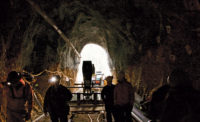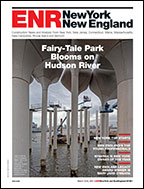As the California High Speed Rail Authority gains a new chief operating officer, a May report released by the state auditor warns of potential delays in the authority’s planned $45-billion project due to inadequate planning, oversight and contract management.
The report warns that the authority hasn’t identified enough non-state matching funds, which are required to access the $9.9 billion OK’d in the voter-approved 2008 California bond that launched the project. The project has received $2.25 billion from the American Recovery and Reinvestment Act. Construction plans call for 2.5 times more state and federal funding to be spent by 2013 than what is currently in place. The report also states the authority doesn’t have the necessary accounting systems in place and has paid as much as $4 million in contractor invoices without proper approval from the program manager, Parsons Brinckerhoff. Questionable bills included an oral agreement that was later contradicted by a written contract to provide a contractor with $46,000 in furniture, the report says. PB deferred comments to the authority.
Curt Pringle, the authority’s chairman, agreed there is a need to beef up accounting but says “no improprieties have occurred as a result of the current process.” He adds, “In many instances, the authority has already taken action to address issues raised in [the] report.”
The authority has hired KPMG to do internal auditing. A new tracking database will monitor expenditures. Authority board member Richard Katz says the agency is in transition. “As we go from an organization structured to keep the project alive to one that is implementing a large, complex project, we will have to put the proper pieces in place,” he says.
One of those pieces is the May 6 hiring of Roelof van Ark, current president of Alstom Transportation Inc., France. He took a hefty pay cut, to $375,000 a year, to work for the authority.
Van Ark will have to address whether assumptions about costs and revenue are accurate. Katz says the updated business plan’s $45-billion cost depends largely on how quickly shovels hit the ground.



Post a comment to this article
Report Abusive Comment